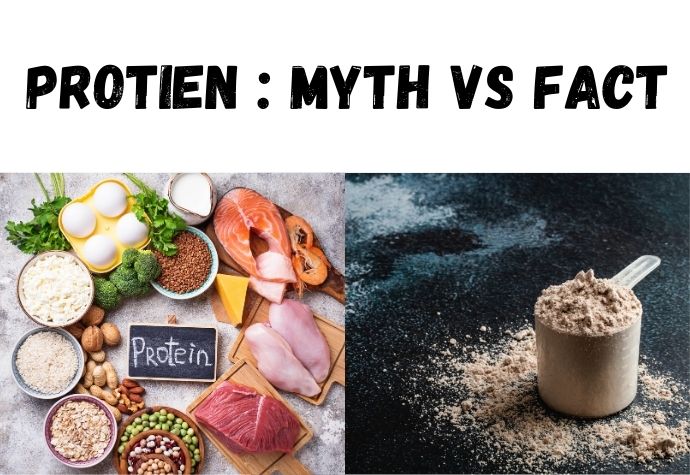When you hear about protein, what is the first thing that comes to mind?
“It’s for gym people… why do I need protein? I don’t want to build muscles.”
But is that really the case?
First, let’s understand what protein is.
Protein is one of the three main nutrients (along with carbohydrates and fats) that our body needs every single day. It is made up of building blocks called amino acids, which are essential for growth, repair, and overall health.
Think of protein as the “construction material” of your body – it builds muscles, repairs tissues, supports hormones, enzymes, and even your immunity.
Fun Fact: Your hair, nails, skin, and muscles are all made of protein!
Have you ever thought about this? Protein is not only for muscles – almost every body part, including organs, tissues, and cells, requires it.
Why is Protein Important for Our Body?
Most people underestimate how crucial protein is. Here’s why you need it daily:
Muscle Growth & Strength – Helps build lean muscle mass.
Weight Management – Keeps you full longer and prevents overeating.
Tissue Repair – After exercise or injury, protein speeds up recovery.
Immunity Booster – Antibodies that fight infections are made of protein.
Energy Source – When carbs/fats are insufficient, your body uses protein for energy.
Fact: The Indian Council of Medical Research (ICMR), through the National Institute of Nutrition (NIN), recommends an average protein intake of 0.8–1 g per kg of body weight for adults.
(So if you weigh 70 kg, you need ~55–70 g daily). This applies to sedentary or moderately active people.
If you are physically active or do strength training, the requirement may go up to 2 g per kg of body weight.
But surveys show that 7 out of 10 Indians don’t meet their daily protein needs.
Why We Struggle With Protein Intake
Our diet is carb-heavy (roti, rice, potatoes).
Breakfast foods like poha, paratha, upma, idli, dosa, khaman, samosa, kachori etc. are mostly carbs.
Vegetarian families depend on dal, but 1 bowl has only ~5–7 g protein.
Busy lifestyles = quick snacks like biscuits, namkeen, and tea (almost zero protein).
To fill this gap, we need at least 20 g protein in each meal.
But for vegetarians, this becomes hard—especially on a calorie deficit diet—because protein-rich sources like paneer, tofu, soy chunks, nuts, cheese, and peanut butter often come with high calories or are difficult to eat in large amounts daily.
This is where protein supplements help. They are not compulsory, but convenient and effective as nutrition support. Myths around them often stop people, even though they are just here to bridge the gap.
Common Myths About Protein Supplements
Myth 1: Protein powder damages kidneys. Fact: For healthy people, protein supplements are safe. Kidney issues occur only if someone already has kidney disease and consumes excess protein without medical advice.
Fact: For healthy people, protein supplements are safe. Kidney issues occur only if someone already has kidney disease and consumes excess protein without medical advice.
(Interestingly, excess sugar is a far more common reason behind kidney damage in otherwise healthy people—not protein.)
Myth 2: Protein is only for gym-goers. Fact: Everyone needs protein – students, office workers, homemakers, seniors – not just athletes.
Fact: Everyone needs protein – students, office workers, homemakers, seniors – not just athletes.
Myth 3: Natural food gives enough protein, so supplements are useless. Fact:
Fact:
1 glass milk = 3 g protein
1 roti = 2 g
1 egg = 6 g
Average Indian diet = ~30–40 g/day
Requirement = 60–80 g/day
→ Supplements fill the gap, not replace meals.
(If you get 30–35 g from supplements, the rest should come from meals.)
Myth 4: Protein powders cause weight gain. Fact: Protein doesn’t make you fat. Excess calories do. In fact, protein boosts metabolism and helps manage weight.
Fact: Protein doesn’t make you fat. Excess calories do. In fact, protein boosts metabolism and helps manage weight.
Myth 5: All protein powders have steroids. Fact: Genuine whey or plant proteins are simply processed milk or plant protein. Steroids are completely different. Always buy from trusted, FSSAI-approved brands.
Fact: Genuine whey or plant proteins are simply processed milk or plant protein. Steroids are completely different. Always buy from trusted, FSSAI-approved brands.
When to Use Protein Supplements?
Vegetarians struggling to meet daily protein targets
Non-vegetarians on a calorie deficit plan
Busy professionals or students who skip meals
Seniors facing muscle loss
Anyone with fitness or weight management goals
Key Takeaway
Protein is not just for bodybuilders – it’s for everyone.
Supplements are not dangerous; they are simply nutritional tools to bridge the protein gap.
So next time someone says, “Protein powder se kidney kharab hoti hai,” you’ll know it’s just a myth. The real danger is not getting enough protein at all

